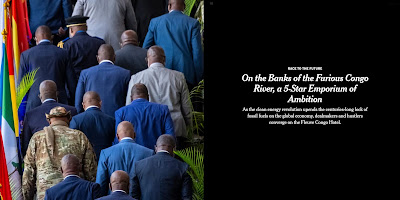Via 1854 - British Journal of Photography
December 8, 2021
“I think some of the greatest photojournalism contains information that we were never meant to see”
In 1985, Michelle and Sid Monroe sat down with Alfred Eisenstaedt to discuss the possibility of exhibiting the famed LIFE magazine photographer’s work at a Manhattan gallery. Then in his 80s, Eisenstaedt regaled the young couple, then in their 20s and engaged to wed, with stories of an extraordinary life behind the camera. (direct link with slide show)
The Monroes experienced a powerful moment of revelation as Eisenstaedt recounted memories of fascism spreading across Europe and the harrowing realisation he would have to leave Germany to survive. “It was the meeting of a lifetime,” says Sid. “It was remarkable to see this person who had witnessed and photographed history. We were in the presence of something bigger than we had ever encountered before. This is our collective history — we didn’t live this but this is what formed the world we were born into.”
Hitler's Window. Germany. 1945 © Tony Vaccaro, courtesy Monroe Gallery of Photography.
The encounter with Eisenstaedt opened their eyes to a new path, one that combined the realms of art, history, and reportage. At a time when photography was still striving to receive proper recognition from the art world, the young couple decided to devote themselves to uplifting, supporting, and preserving the work of photojournalists with the creation of Monroe Gallery in a classic street-level Soho loft on Grand Street. “It was like falling in love,” says Michelle. “It wasn’t a strategic decision that either of us made but more like listening to a piece of music that you were completely moved by.”
Sid concurs. “It became a passion that probably wouldn’t have made any sense if we had thought critically about it, but we decided: this is it. It was a remarkable time. We met many of Eisenstaedt’s colleagues for LIFE, who were all in their 70s or 80s. Although they had retired, they still had offices at the Time-Life Building and were treated like royalty. When we opened our gallery, we thought we hit the jackpot and assumed everyone was going to feel what we feel.”
But in the 1980s, photojournalism wasn’t sexy, it wasn’t conceptual, and although it was reasonably priced, it was a hard sell. At the time, dealers were focused on selling vintage prints, while the Monroes were breaking new ground selling multiples and limited editions. “It was a little bleak in the beginning because people didn’t understand,” Sid says. “But, on the flip side, that allowed us to develop our focus and it became our domain.”
Mrs. Chaney and young Ben. James Chaney funeral. Meridian, Mississippi. 1964 © Bill Eppridge.
After 9/11, the Monroes left downtown Manhattan and headed west, settling in Santa Fe, New Mexico. “It gave us more freedom,” says Michelle. “In New York, you’re always going to be a relatively small gallery and competing for attention. In Santa Fe, you stand out just by doing what you do.”
Santa Fe living also allows for a distinctive change of pace. “In New York, it’s ‘I’ve got five minutes, show me what you’ve got’,” says Sid. “Here it’s more relaxed. We can sit and talk with collectors — but it’s still a hustle.”
Indeed, the Monroes have worked diligently over the past 20 years to establish the gallery at the intersection between photojournalism and fine art, showcasing works embedded in our collective consciousness that shape our shared history. The gallery roster includes Bill Ray, Tony Vaccaro, Bill Eppridge, Eddie Adams, Nina Berman, Cornell Capa, Ruth Orkin, and Nina Leen — photographers who not only documented their times but have also transformed the very way we see.
“Eisenstaedt, Carl Mydans, Margaret Bourke-White, Gordon Parks, they taught us how to look at history, and the people we represent are part of the same family tree. Over the past 10, 15 years, we’ve seen more work that has the same visual impact,” says Michelle. The gallery roster has expanded to include more women and artists of colour such as Anna Boyiazis, Gabriela E. Campos, Whitney Curtis, and Sanjay Suchak.
“We are fortunate to have had direct personal relationships with these photographers from the very beginning,” Michelle says. “Initially it’s visual attraction but we’ve learned the consciousness of these photographers and it becomes one and the same with what they are driven to do. To sit across from them and bear witness to what they have seen gives us the motivation to show their work to the world. I think some of the greatest photojournalism contains information that we were never meant to see.”
Tony Vaccaro at 99 is on show at Monroe Gallery until 16 January 2022.
About the author
Miss Rosen is a New York-based writer focusing on art, photography, and culture. Her work has been published in books by Arlene Gottfried, Allan Tannenbaum, and Harvey Stein, as well as magazines and websites including Time, Vogue, Aperture, Dazed, AnOther, and Vice, among others.











